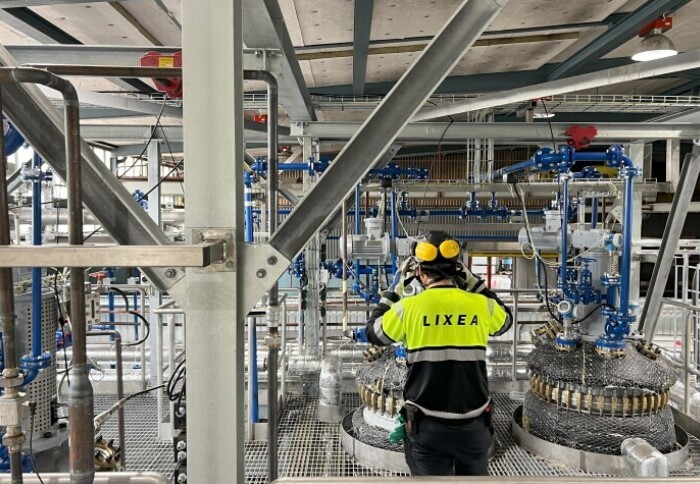Imperial spinout awarded EUR 21.5 million Innovation Fund grant

Lixea’s groundbreaking “L1X” biorefinery project will build and operate a commercial pilot plant.
Lixea, a technology development company originating from Imperial’s Department of Chemical Engineering, has been awarded a EUR 21.5 million grant from the EU Innovation Fund to further its mission to repurpose biomass waste into profitable and sustainable biomaterials.
The grant will be used towards the building and operation of Lixea’s first of its kind (FOAK) “L1X” pre-commercial demo plant, demonstrating a completely new method for biomass fractionation based on ionic liquids. The project will enable the replacement of fossil materials with biobased alternatives in applications where it has not been previously possible, thereby advancing the transition to a bio-based economy.

This has been a vision for quite a while, but developing practical processes for doing so economically and at scale is highly challenging. Lixea have shown this is feasible at lab and pilot plant scale with an innovative technology.
We have a long journey ahead, but this acknowledgement is of enormous financial and ethical importance to us. Krisztina Kovacs-Schreiner CEO, Lixea
Lixea CEO Krisztina Kovacs-Schreiner stated: “It is an honour to receive this grant. It recognises our tremendous efforts over the last five years to translate our revolutionary, novel technology from laboratory and pilot-scale to a sustainable, globally used process that contributes to the realisation of a truly circular bioeconomy. We have a long journey ahead, but this acknowledgement is of enormous financial and ethical importance to us, and we are grateful for the support. Along with the grant, we also received the Strategic Technologies for Europe (STEP) seal recognition of excellence, which recognises the enormous impact our technology can achieve beyond our first L1X plant!”
ChemEng Enterprise - a rich history, an exciting present, a bright future
Professor Sandro Macchietto, Director of Enterprise, Department of Chemical Engineering, said: "Bringing such industrial innovations to market typically require demonstration at small and intermediate scale, which takes time, capital, persistence and much technical and commercial grit, but can revolutionise an entire industry. A number of such innovative technologies generated from research have recently been launched as spinouts from ChemEng Enterprise, the highly successful decentralised Enterprise support programme launched by the Department of Chemical Engineering, unique within Imperial College London."
Bringing such industrial innovations to market typically require demonstration at small and intermediate scale, which takes time, capital, persistence and much technical and commercial grit, but can revolutionise an entire industry. Prof Sandro Macchietto Director of Enterprise, Department of Chemical Engineering
ChemEng Enterprise includes a pre-seed funding scheme, extensive advice and mentoring, support of interactions with Imperial and funders, dedicated workshops and a yearly ChemEng Enterprise Day bringing together founders, early investors, mentors (alumni and professional) to network at the earliest possible stage.
Find out more about ChemEng Enterprise.
Article text (excluding photos or graphics) © Imperial College London.
Photos and graphics subject to third party copyright used with permission or © Imperial College London.
Reporter
Navta Hussain
Department of Chemical Engineering